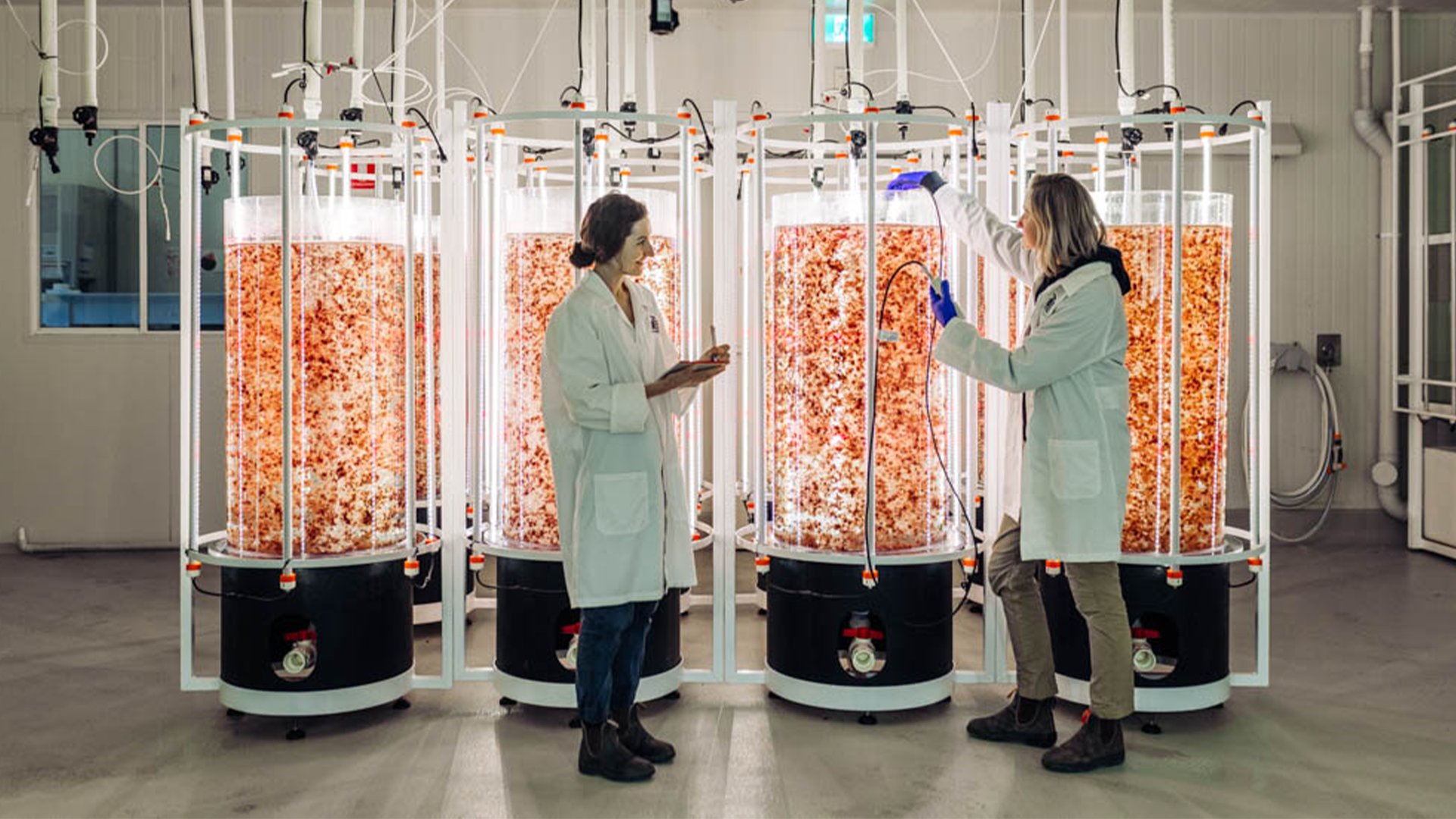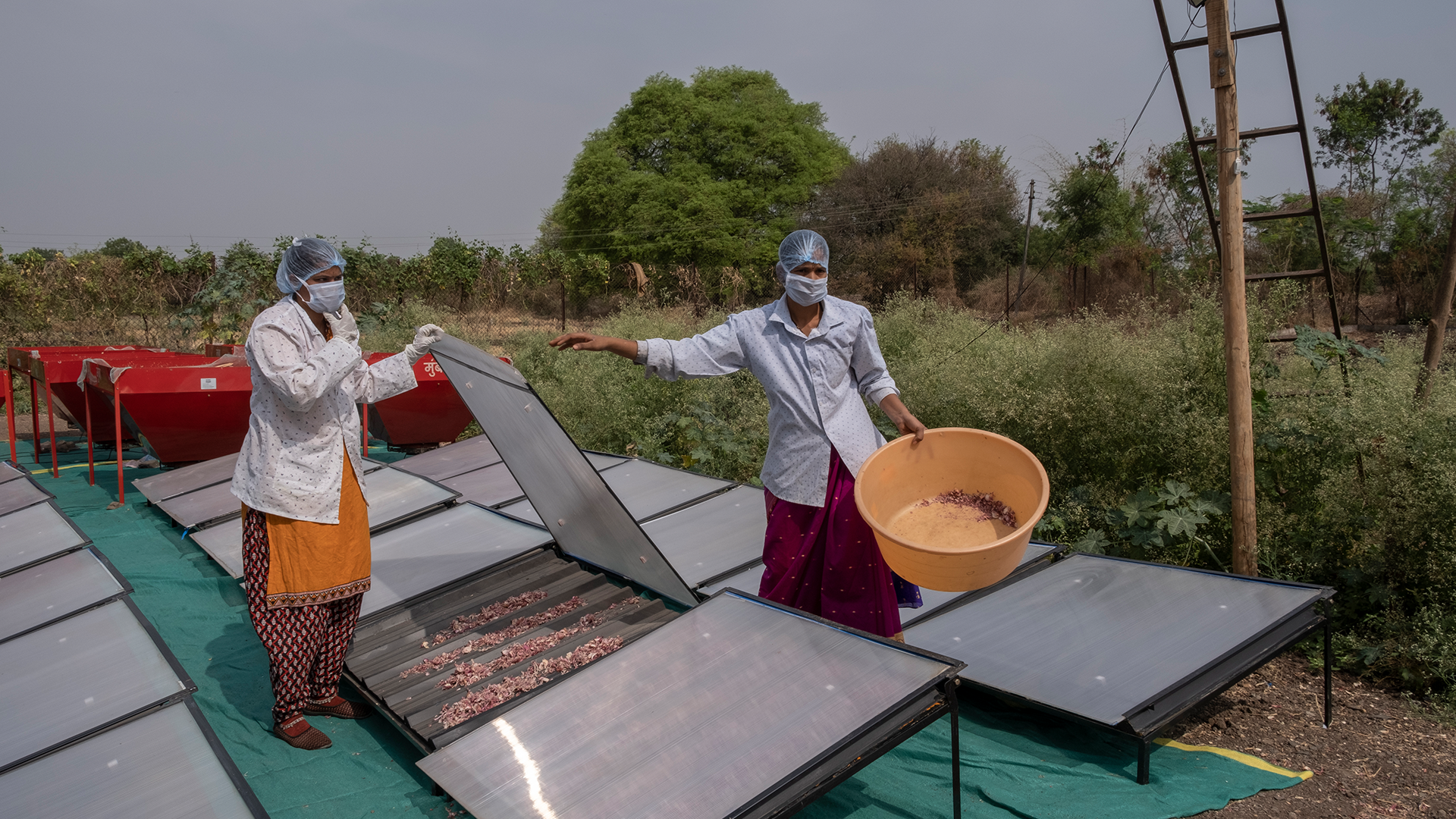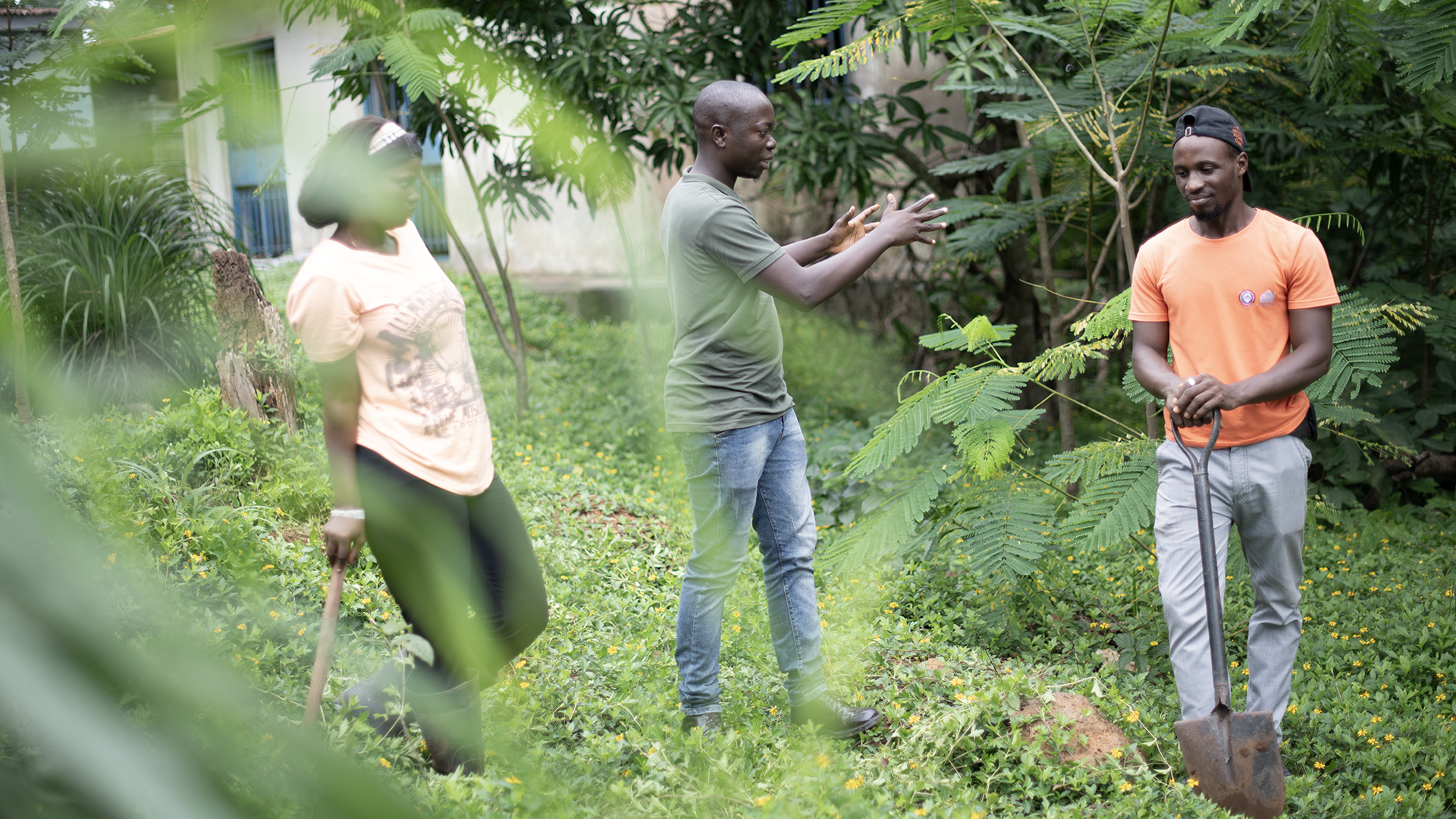Seeing inspiring solutions that people all around the world are creating to tackle the climate crisis lights a fire within us. It fills us with hope and energy to keep fighting for a healthy future for people and the planet. And with the Earthshot prize just around the corner, there's plenty of solutions to discover!
The Earthshot prize was started in 2020 by Prince William to find, fund and scale solutions to the world's greatest environmental challenges (Fix Our Climate, Protect and Restore Nature, Clean our Air, Revive Our Oceans and Build a Waste-Free World are the categories). This year, the winners will be announced on November 7 and receive funding to aid their work!
To give you a snapshot of the amazing solutions in the running for the prize this year we've picked three very different finalists from the group (all fifteen are amazing, check them out here if you have time!).
Sea Forest | Fix our Climate
We're starting close to home with Australian company Sea Forest who are helping fight climate change while generating more food with fewer resources. Sea Forest are tackling something responsible for a whopping 30% of global methane emissions: cows and sheep.
One cow emits around 100 kilograms of methane gas a year. There's more than a billion cattle on Earth and over 1.2 billion sheep. This means, livestock farming accounts for 14% of all human-induced greenhouse gas emissions, and finding a solution to this problem has potentially massive impacts.
The good news is, Sam Elsom, founder of Sea Forest, has developed a seaweed-based livestock feed that dramatically reduces the methane emissions from cattle and sheep, while supporting sustainable farming and healthy marine ecosystems. It's a win-win-win situation!
The feed supplement is made from native red seaweed and honestly sounds like magic. It has an almost immediate effect as soon as livestock consume it, just 0.5% of the SeaFeed supplement, included as a tiny fraction of an animal's diet, can cut methane production by 90%. And there's more good news, the seaweed used is versatile enough to be grown on land or sea in other parts of the world, plus it captures carbon and helps fight ocean acidification.
Applying this solution to 15% of the world's cattle population could reduce three gigatonnes of emissions globally, according to Earth Shot.

S4S Technologies | Build a waste-free world
Food waste, rural poverty, gender inequality. These are all tackled by S4S Technologies, who are helping female farmers in India turn food waste into a valuable product.
S4S Technologies was founded by a group of university friends - Nidhi Pant, Vaibhav Tidke, Swapnil Kokte, Ganesh Bhere, Shital Somani, Tushar Gaware and Ashwin Pawade. Their approach to supporting rural communities is multi-tiered.
They provide rural communities with a cheaper and sustainable way to preserve food that might otherwise be wasted - solar-powered conduction dryers and food processing equipment. With a strong focus on women, S4S also supports farmers to transform food waste into something valuable that can be sold, like ketchup. They then connect commercial buyers to these products and farmers.
The 300,000 women smallholder farmers S4S have supported recorded 10- 15% increases in their profits, and the 2,000 female entrepreneurs they partner with have seen incomes double or even triple. By 2026, S4S predicts they will have reduced food waste by 1.2 million tonnes and removed the equivalent of 10 million tonnes of CO2 from the atmosphere.

Freetown the Treetown | Protect and Restore Nature
As it rapidly expanded over the past half century, Freetown, the capital of Sierra Leone, lost millions of trees. And it's already experiencing the negative impacts of this - floods and landslides devastated the city in 2017.
But a city-led scheme led by Manja Kargbo is bringing these crucial ecosystems back to the city, and protecting them for future generations. Freetown the Treetown is a 'pay-to-grow' scheme to plant, grow and digitally track trees. Here's how it works: city residents are paid to plant and monitor trees and mangroves, which are tracked on an online platform. The city is on track to meet its target of planting one million trees by 2024, and thanks to tree guardians in the city and the digital tracking, there's been an impressive 80% survival rate for the trees.
The city council also works with communities to raise awareness of the importance of trees.
Not only has this initiative been very successful, it provides a blueprint for other cities to replicate.

We love seeing these climate solutions which will help us create a world that's safe and healthy for all people and the planet.
Images provided by Earthshot 2023 and used with permission.

